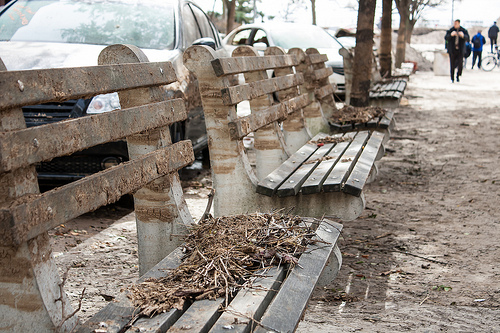Hurricanes, storms and tornadoes are dangerous and very inconveniencing. While taking the necessary precautionary steps before they hit your area or locale helps a lot, what is even more important is what to do afterwards.
Please note that a sudden calm or a drop in the ferocity of the winds does not necessarily mean that the hurricane has passed. You may just be in the eye of the storm. Once that passes, you would be caught in its winds. So, make sure that it has passed by entirely before you do anything. Here are the things you need to do after hurricane damage.
Assess the Damage
Once you’ve been given the all-clear, go outside or back home if you were evacuated to a safe location or storm shelter. Then assess the amount of damage done to your home. Check for flood damages, tree damages and property damages. If your property sustained minimal damages, take pictures of the damages and then start working on temporary or even permanent repairs.
Small repairs to garage door damages, roof damages or broken windows can be fixed within 2 days. If the damage is extensive and you do not have the funds to commence a full repair, look for an alternative or temporary fix while waiting for the insurance adjuster.


Ocean Parkway bench: Brooklyn Brighton Beach after Hurricane Sandy by drpavloff, on Flickr. This work is licensed under a Creative Commons Attribution-NonCommercial 2.0 Generic License.
File Your Claims with the Insurance Company
As soon as you have ascertained the extent of the damage to your property, it is time to contact the insurance company. Please note that most home insurance packages do not cover flood or storm surge damages. You need a separate flood insurance coverage for that. If you need more information about this, check out the National Flood Insurance Website.
So, if you have an agent in the business, get in touch with them immediately and explain the situation of things to them. If not, file your claims directly with the insurance company’s claims department. Some people say one does not have to wait until they are done assessing the extent of the damage.
We think it is better to do this after you have assessed the damage, that way, you will have something more concrete to present as evidence (this is where taking pictures or even videos of the damage before commencing temporary repairs come in).
Take Inventory of What is Left
If you live in a hurricane-prone area, chances are you already took an inventory of everything in the house before the hurricane started. So, check what is remaining and then compare it to the list you had previously. As usual, make sure that list is kept in a safe place where it will not be affected by the storm or the rains.
An excellent idea would be to save everything on the PC, transfer to your phone and memory card, wrap it in nylon or any waterproof wrapper and keep it on your person or in any safe location where it will be easily accessible after the storm. Take note of everything that’s missing and those still intact. This way, when you hand it over to the insurance adjuster, he’ll be able to see right away what is left and what you lost. This helps speed up the compensation process.
Keep Track of Every Expense After the Hurricane
Getting the claims adjuster to come visit after a major disaster can be quite difficult, particularly when there are many damaged homes and properties. So, you will need to exercise some patience. In the meantime, start doing the things you need to do and keep track of every expense.
As much as possible get a receipt for every purchase made towards the repair of the property. If the damage is extensive and you have to live elsewhere until the claims adjuster comes to inspect your property, take note of all living expense you make. These are all funds that you can claim when filing your compensation claim.
Sometimes, in spite of your due diligence, you might find the compensation payout unsatisfactory. It is the insurance adjuster’s job to determine how much you get paid. Sometimes, your insurance policy will not cover everything.
This is where the Federal Emergency Management Agency grant might come in handy if you live in a designated federal disaster area. If you feel that you have been under-compensated, get a property damage lawyer to go through all your evidence. If he determines that you were supposed to get more, he will then file the claims on your behalf and help you get the maximum payout you are owed.
Sources:
http://www.disasterassistance.gov/
www.fema.gov/disaster-recovery-centers
Oscar King is an insurance adjuster in the state of Florida who has seen more than his fair share of flooded and damaged homes. For those who are not insured, he always recommends shopping around, but highly advises checking out InsuranceLand. You can find out more about Oscar, including examples of his work, by visiting his Google+.
